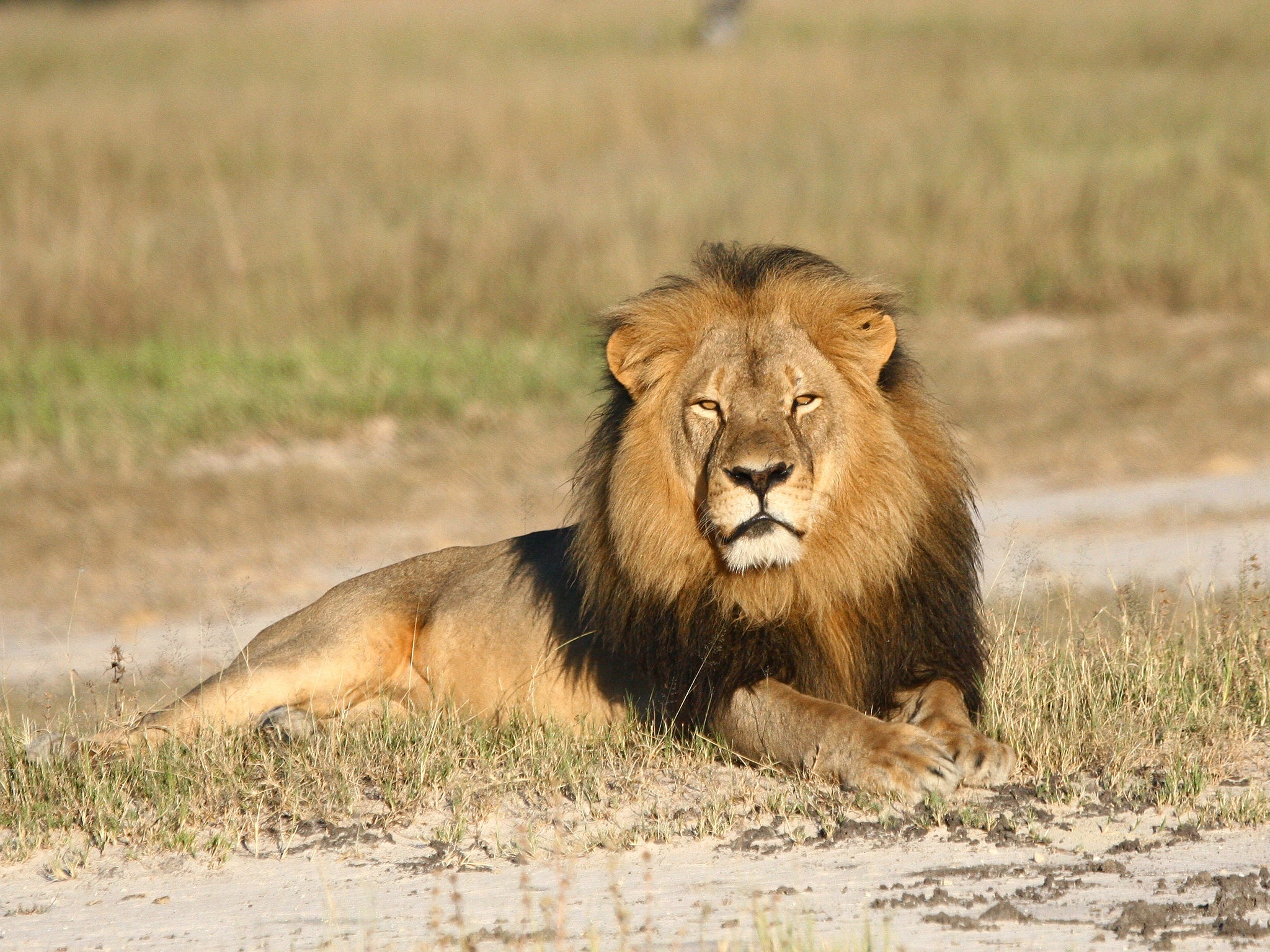Cecil the lion: Zimbabwe court drops charges against hunter over animal's death
Court rules the charge of 'failing to prevent an illegal hunt' is too vague to answer

A high court in Zimbabwe has cleared a professional hunter in connection with the death of Cecil the lion.
The death of the animal – which was allegedly lured out of its home in Hwange National Park, shot with a bow and arrow and left to bled to death in July 2015 – provoked outrage around the world with many calling for an end to trophy hunting.
The US dentist who shot it, Walter Palmer, was forced to temporarily go into hiding after facing death threats and protests outside his practice in Bloomington, Minnesota.
But on Friday the court ruled that Theo Bronkhorst, the professional hunter and guide who organised the trip, should not face criminal charges.
His lawyers successfully argued that the charge of "failing to prevent an illegal hunt" was too vague to answer and although he had breached National Parks regulations this did not amount to a criminal offence, the BBC reported.
The charges against Mr Palmer had been dropped by the court in October 2015.
Cecil had been wearing a GPS collar at the time of his death as he was participating in research by the University of Oxford – allowing park rangers to monitor his movements.
The animal was famous in Zimbabwe and tourists would travel from all over the world to go on safari in the hopes of seeing him.
Following his death, donations to animal conservation charities in the region began to flood in leading to the foundation of the Conservation Wildlife Fund which funds community and conservation projects with a voluntary levy of $10 (£7.50) a night on rooms in the park.
Due to a range of factors including poaching and loss of habitat, the lion population in Africa has dwindled to just 25,000. 450 of these live in Hwange National Park.
Join our commenting forum
Join thought-provoking conversations, follow other Independent readers and see their replies
Comments
Bookmark popover
Removed from bookmarks